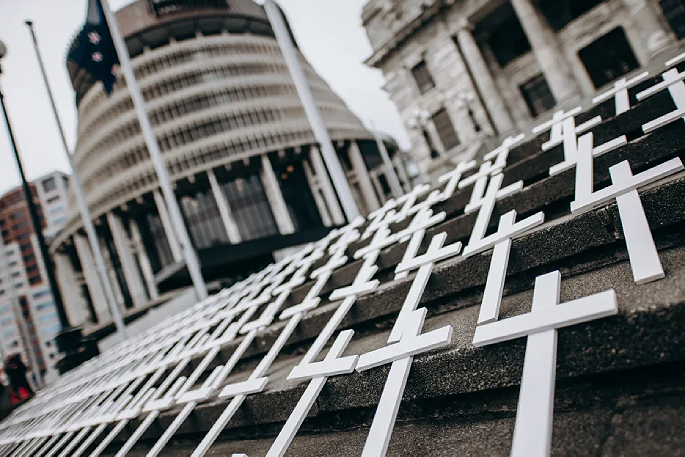About 1000 people who die of cancer every year in New Zealand would have survived if they lived in Australia.
That is the stark conclusion of Auckland University cancer epidemiologist Professor Mark Elwood, who has analysed New Zealand's cancer outcomes in an editorial in the New Zealand Medical Journal.
"We're about 11 per cent below what we would be [in survival rates] if we had the same experience as Australia and it's been that way for 20 years.
"Cancer death rates in both countries have gone down, but the differences have persisted.
"And that means we have about 1000 extra deaths than we could have."
Between 2014 and 2018, deaths in New Zealand from cancer were 17 per cent higher among women and 5 per cent higher in men, compared with Australia.
Survival figures for Māori were even worse.
Health Minister Shane Reti this week announced five new health targets, including "faster cancer treatment", with 90 per cent of patients to receive treatment within 31 days of the decision to treat.
The last time the health system met that 90 per cent target was September 2021.
In September 2023, 85 per cent of cancer patients received treatment within a month.
Professor Elwood says timely treatment is vital, but that alone can't completely close the survival gap with Australia.
The biggest factor in long-term survival with cancer is speed of diagnosis.
"The biggest barriers we have got are at the primary care level - it's difficult and slow for GPs to investigate patients, get tests done, get specialist opinions when needed.
"All that has to happen before a diagnosis is confirmed."
In a study of eight selected cancer types, more than 42 per cent of those cancers in New Zealand are diagnosed as a result of an emergency admission - higher than Britain, Canada, Australia, Norway and Denmark.
Lower funding, staff and equipment shortages and fewer funded medicines also add up to worse survival rates, says Elwood.
"There are 18 medicines available in Australia, which would likely have substantial benefits to some people. But it's a relatively small number compared with the large number of people for whom prompt diagnosis would make a much bigger difference."
The workload for New Zealand oncologists is nearly twice as big, with 525 cases per specialist in New Zealand compared with 272 for their Australian colleagues.
Excess deaths are not because New Zealanders have more cancer compared with Australia, says Elwood.
Cancer rates here are "actually slightly lower".
"It's because we're not as successful in treating it. And that is an indication of the entire system. To get good outcomes in cancer is a test of the whole health system from diagnosis to advanced care."



1 comment
Sad but true.
Posted on 12-03-2024 15:11 | By morepork
As a patient diagnosed with a cancer (melanoma) that averages 6 weeks to metastasize (spread), and then having to wait for 16 weeks before finally giving up and going private, I can attest to the extreme mental stress this imposes. Waking up every morning and checking lymph glands to see if it is spreading. What can I do to inhibit the spread? I found some natural remedies which I believe saved my life, and the lab confirmed that my body had been attacking the tumour when it was removed, but I still would not wish this experience on my worst enemy. We definitely need to do much better in addressing the wait time for patients, not just for cancers, but for everything. Australia may have more resources than we do but they are not more smart. We SHOULD be able to do better.
Leave a Comment
You must be logged in to make a comment.